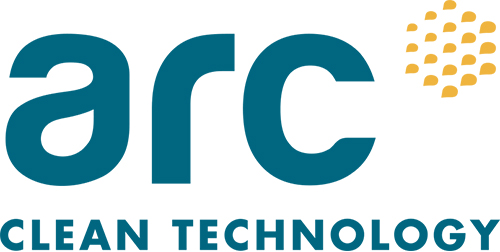Dec 16, 2020
Telegraph Journal: How a Tax Hike Could Help Two New Brunswick Companies
The following article by Political Editor, Andrew Waugh, ran in the Telegraph Journal:
Ottawa's plan to dramatically raise carbon taxes in order to meet its climate change goals could help New Brunswick's push to build and sell small modular nuclear reactors (SMRs), according to a leading economist.
Herb Emery, the University of New Brunswick's Vaughan Chair in Regional Economics, said the federal government's plan to raise carbon taxes from $30 per tonne of pollution to $170 per tonne by 2030 “has likely tipped the balance of the market toward SMRs and away from renewables."
That's because, Emery said, renewable energy sources can't add “base-load" power to the electricity grid. Base-load sources operate continuously to meet the minimum level of power demand, and SMRs can store energy that can be fed to the grid when needed.
"The Atlantic Loop, with hydro (power), can't add enough year-round capacity ... if there's no battery for the renewables, SMRs provide the potential to act like a battery because it's a nuclear supply you can turn on and off. Not like [the Point Lepreau nuclear power plant), which has to run all the time."
Two New Brunswick companies, Moltex Energy and ARC, have asked for a combined $70 million from the federal government to get their SMR projects going. Premier Blaine Higgs and Beauséjour MP Dominic LeBlanc, Ottawa's intergovernmental affairs minister, have both recently said an SMR funding announcement is imminent.
The government's carbon tax move, Emery said, has "accelerated the timeline by which you need ... either battery storage for renewables [or] finding baseload capacity to replace the dirtier stuff you're phasing out."
"SMRs were always in that [10-year] timeframe anyway, but the question has always been 'Where's the demand going to come from?' It's about to come from a lot of places that are still burning coal, still burning oil, still using dirtier fuels to generate electricity.
"I think the hope had been from what's called the 'green revolution' crowd - that [the carbon tax increase] was going to spur renewables – but they really needed a battery system to do that. And there is no utility-scale battery that's even feasible to construct
at this point."
Moltex's North America CEO, Rory O'Sullivan, said the "case for SMRs has never been stronger."
“The recently announced federal climate plan shows that Canada is committed to reducing emissions," O'Sullivan said in an email statement. "It supports all forms of low carbon generation equally.
“We are convinced that our hybrid SMR and energy storage technology, GridReserve can be a pillar of a low carbon economy, even enabling lower cost renewables. The alternative is for wind and solar to be backed up with electric batteries and that will be very expensive."
ARC Canada President and CEO Norman Sawyer said his company is perfectly positioned to help.
"It has been evident for some time that decarbonization policies are required to create a levelized playing field in the energy sector." Sawyer said in an email statement.
"These policies allow all low-carbon electrical generation technologies to compete on their own merits. Incorporating CO2 emission costs into the price of electricity equalizes climate-friendly energy technology costs, which includes intermittent renewables, along with the reliable ARC Canada technology being developed in New Brunswick.
"In fact, such a levelized playing field supports the ARC Canada approach of technology development that can create economic growth, well paying jobs and generate a tax base to support the province's social programs.”

